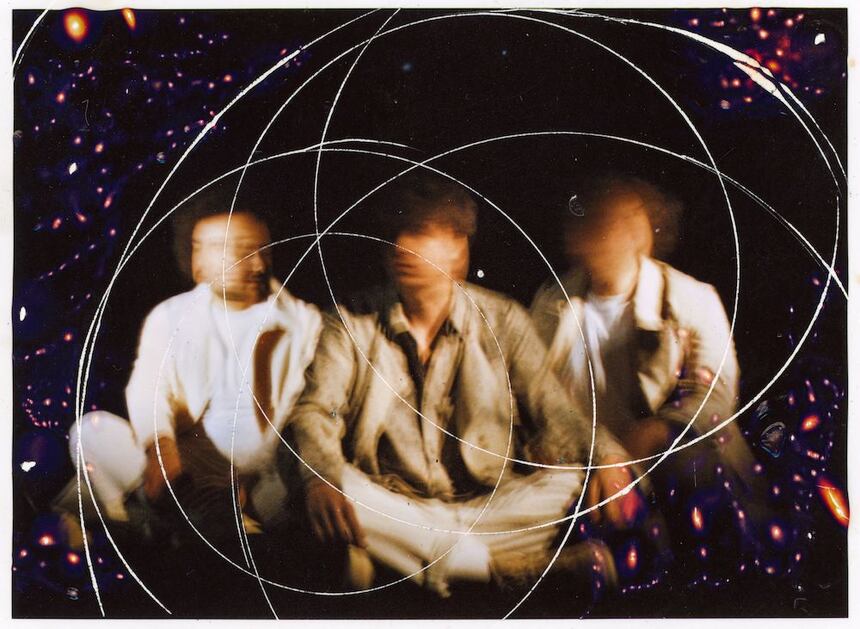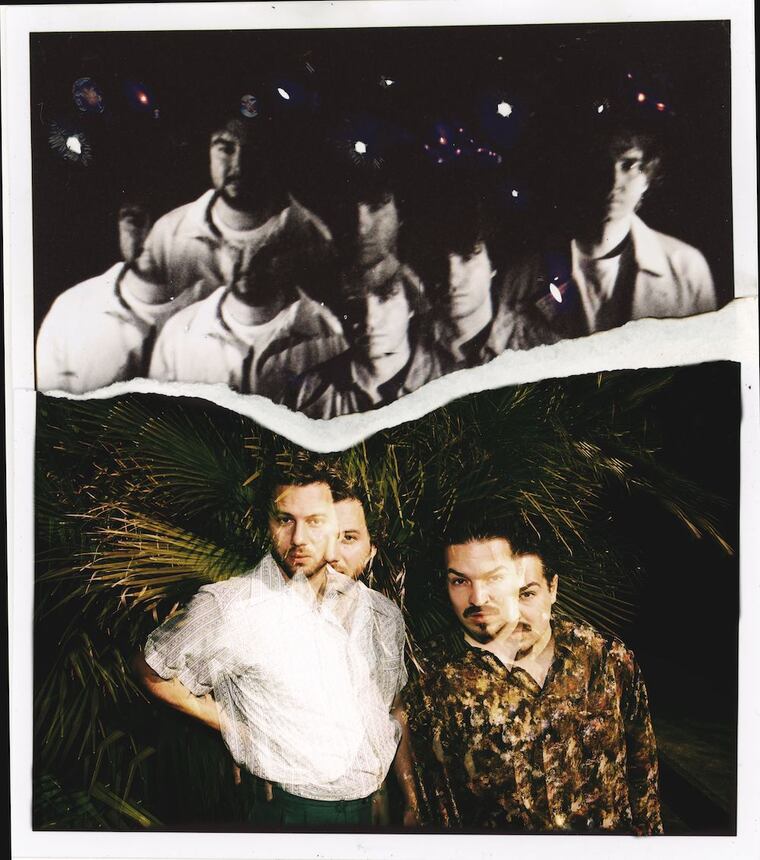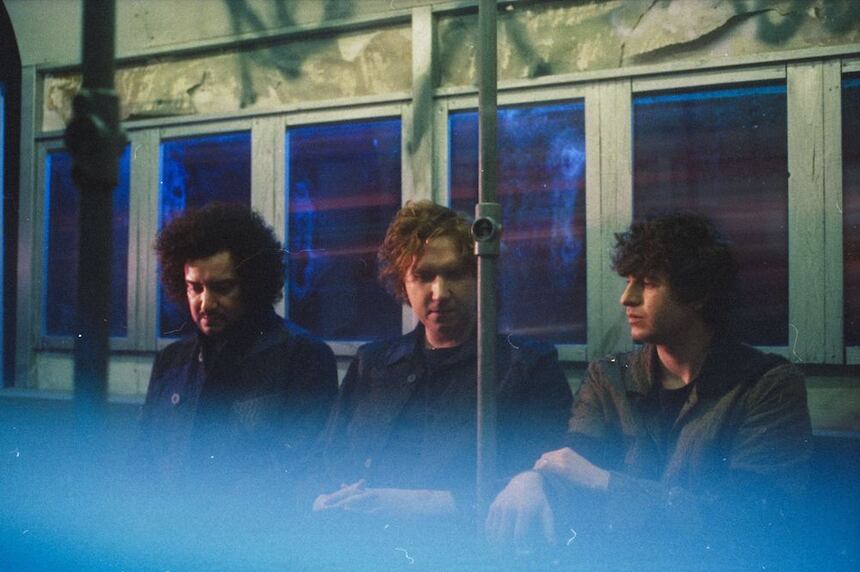Luke Pritchard has grown up... From teen hero of the mid-2000s, with fuzzy hair and acoustic guitar in hand, the lead singer of the Kooks seems to have calmed down a bit after seven albums and a pandemic. Their debut album Inside In/Inside Out (2006) catapulted the then early-20s boys to the top of the charts, and the bar was set very high very early on - which isn’t always easy. Now, during our interview, the newly minted father resides in a small fishing village east of London and reviews the past months and years. The making of his recently released album, 10 Tracks to Echo in the Dark, has - “surprise surprise” - dragged on due to the pandemic. “For us, it’s less of a live album,” Pritchard reports, “it’s more of a listening album.” Instead of jam sessions and brainstorming together in the studio, they had to make do in their bedroom and improvised home studio. But the Kooks were lucky: even before the first Lockdown, much of the recording was done in effervescent and creative Berlin - a metropolis that has captivated countless musicians. So Luke tells us about his impressions of the city:
“The world feels a little bit like the lunatics have taken over the asylum, and Berlin seemed to maintain some kind of reality when I was there, in a lot of different aspects in terms of the new generation. I found it a bit of a haven for me at the time when I started going over to make music you know, I found it quite refreshing. The overarching feeling in Berlin I think is the concept of using art as a kind of change, like osmosis of the negative and ugly into something beautiful, and I think that's something that is inspiring when you're there. It's spiky but quite loving.”
Besides the influence of Berlin - can you tell us something about the process of making the album?
It took us a long time to get it out because it was a pandemic album. Like the song we did with Milky Chance, Beautiful World… We had to just send files over to each other and it takes a bit longer when you're doing that. It was kind of two halves, the first half was done before everything was knocked down because I was in Berlin doing quite a lot of recording, and then the second half we did between London and Berlin over iPhones. So yeah, it kind of was a bit of a pandemic record and in terms of content, it definitely reflects that in a sense. It's like less of a live record for us, we're a band and we make records that we want to play live - and we keep that in our minds - and we get in a room together and play. Whereas this is probably the first album we've ever done which is laid back in that sense, it's more of a listening album. I mean, I'm sure it's gonna be cool live but it's more introspective and in some ways was inspired by what was going on. You know you find yourself as well looking for themes, like what do you talk about when you're not experiencing life? So yeah that was a new experience, trying to be a bit more creative and maybe a little bit more imaginative with the lyrics because it was going into a more dream state of writing rather than writing about my own life so much…
As for Berlin inspiring it, you know I think it did in lots of ways. Sonically it's very inspired by Berlin, especially the sound choices that we made. We used a lot of drum sounds that kind of have more of an industrial coldness to them, which is different to what we would normally go for, and that's quite a Berlin kind of sound… Drums that sort of could be played in a warehouse sound. And the synth works as well. But a lot of that comes from Tobias Kuhn who produced it with us and he and I wrote a lot of the songs, so he brought some insane synth work to the album and that definitely sort of makes it feel like a Berlin sounding album. It's sort of meant to be like a post-apocalyptic late 70s, early 80s vibe.

What kind of musical influences or artistic exchanges did you have with the band members?
We had the direction of the record from the beginning. The first song we wrote was Connection and actually, with albums I always find it takes one song to sort of get going. You write a bit and then you get one song and you're like ‘right that's the vibe’, and that song was kind of it. So once we had done Connection we thought let's move on that kind of sound, that kind of idea. But everyone brings their own influences, I really wanted to strip everything down and again that's quite a Berlin thing (laughs). It was a conceptual record in terms of lyrical but also musical themes, so we had a quite specific idea of how we wanted to sound.
Was the concept of the work different this album than with the other albums?
Yeah, it was very very different, like I said before, this one was a lot less live it was a lot less about us playing together. There were elements of that but the chemistry came through the writing, but writing mainly in a bedroom or a sitting room as opposed to spending lots of time in the studio jamming… It makes it a little more specific sound-wise rather than letting go a bit in the studio where you're all there and you're chucking ideas and it all comes together in the room. But it was important to keep the DNA of the band - we're in a kind of funny space now, The Kooks. We're on seven albums so you know we have to be aware of what we are and maintain that and not mess with it too much. So of course you have songs like Cold Heart for example which is like very 2006, we've got the drum machine and it's got different elements, some cool sort of falco synths in the chorus you know. But then it has the ‘kooksy’ or kind of Bloc Party-Kooks-elements from that time in the guitar riffs and the vocals, so it's good to keep your DNA, we definitely tried that, yeah.
It's pretty impressive because you all still stick together in more or less the same constellation and it seems you grew up together as a group - which is not always given and can sometimes be difficult…
Totally, I'm glad that comes across. Obviously we're independent thinkers, an independent band, we don't have the pressures of people telling us you have to stay in the same lane and we have tried to always look forward. You know we had a bit of an amazing situation but a difficult one, which is that we had such a big first album. The danger when you have such a commercial success on something is that you always try and recreate that because, hey who doesn't like commercial success right? (laughs) And all the people like it. So we've tried really hard to not do that and I think we've achieved that by making different sounding albums, but you've got to keep a kind of identity. There are moments where you veer too far and you have to pull yourself back. And thanks to great producers as well. They're looking back at the Tony Hoffer records, the first ones, and try to keep you on that train.
With your last album Let's Go Sunshine, which was released in 2018, you also experienced new musical paths...
Yeah you have to try new things, it’s important, otherwise you can get quite bored quickly as well. We just spent too much time in California, that's one of the reasons for coming back to Europe as well. But I think with Let's Go Sunshine we went to new places… I mean it's a journey. The whole thing's like a really long interesting journey which is about keeping yourself inspired and is keeping the love, that’s important.

The Kooks und Milky Chance
Do you stick to special things or influences in your music?
I’ve always been a child of the beat generation and I think that never changes, also in terms of the structure of the songs. The Kooks are always going to be mid-century pop music and Brit-pop essentially. With lyrics and everything it's kind of beat poetry I guess, I constantly would find myself slipping into those realms of Allen Ginsberg and Bob Dylan and that. Even if you're doing different things with the sound, I think that's the way I write songs and so that does stay with you.
On this album, I’ve been reading a lot more surrealism and science fiction so I found that did change even though it wasn't intentional, but it slightly changed my lyrical themes. And I found myself married and having a kid and it's kind of different rather than I guess being heartbroken or being angry (laughs). It was a new experience for me going into an album where I was feeling quite - I’ve always been quite spiky - centred and chilled. So some of the songs were a bit more dream-like and a bit more surreal, and so that's quite fun on this record. I've not really touched on that before.
The music industry has changed a lot in the last few years. Has that also affected your art or how you make music?
I guess it has but maybe not really in the process, I mean I definitely work with computers a lot and I did a record with my wife we have a band called Duo and we did this kind of “Serge and Jane” sort of “françoise-english couple do french music sounds” (laughs). It's a really cool little record and because we did it in the pandemic I worked a little bit on computers but I really learned how to produce and that definitely changed. Tobi - who produced 10 Tracks to Echo in the Dark - really taught me so much. So that’s definitely a huge difference for me because I'm way behind the times! People were doing that a long time ago and I’m so used to writing a song on the guitar and then bringing it in and playing it with the boys in the band and then we jam the song and then we arrange it and then we record it… So this was really fun on this new album, and that changed a lot of the way that I was writing.
And we as a band, our lifespan, we've seen the change so much and we've decided on this album to do EPs, so we did three EP's (Echo in the Dark, Pt. I, II and III) rather than an album. Because everyone would expect The Kooks to just release another album and you know I see a lot of modern artists who don't really do that and they release songs until they have an album and then you put the album out and that's a debuting thing, so then I thought, we don’t need this. It's not that we're above it or anything in any way but we're just not really trying to chart. I don't really believe in the charts anymore, they don't really mean anything. Now songs can have much bigger lifespans, you can put out a song and no one cares and then a few years later social media might discover it and it becomes a big hit. Running Up That Hill by Kate Bush is number one at the moment and it was recorded in what? Like ‘82 or something? I mean it's a weird time and from the point of view of putting music out when you make music it's quite exciting because it doesn't matter so much about that first like massive releasing campaign and chucking it in people's faces, It's like people might discover it over the time, so yeah I like that.

The Kooks will be touring the world from September 2022 to March 2023.
LISTEN TO "10 ECHOS IN THE DARK" BY THE KOOKS NOW ON QOBUZ
Interview conducted by Lena Germann, 7 June 2022.
Visuals © Paul Johnson